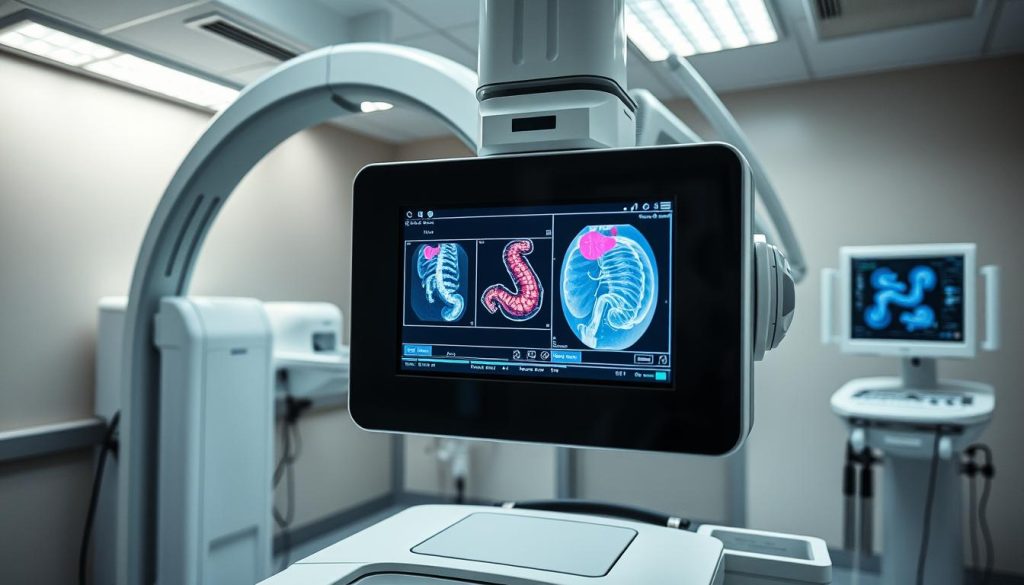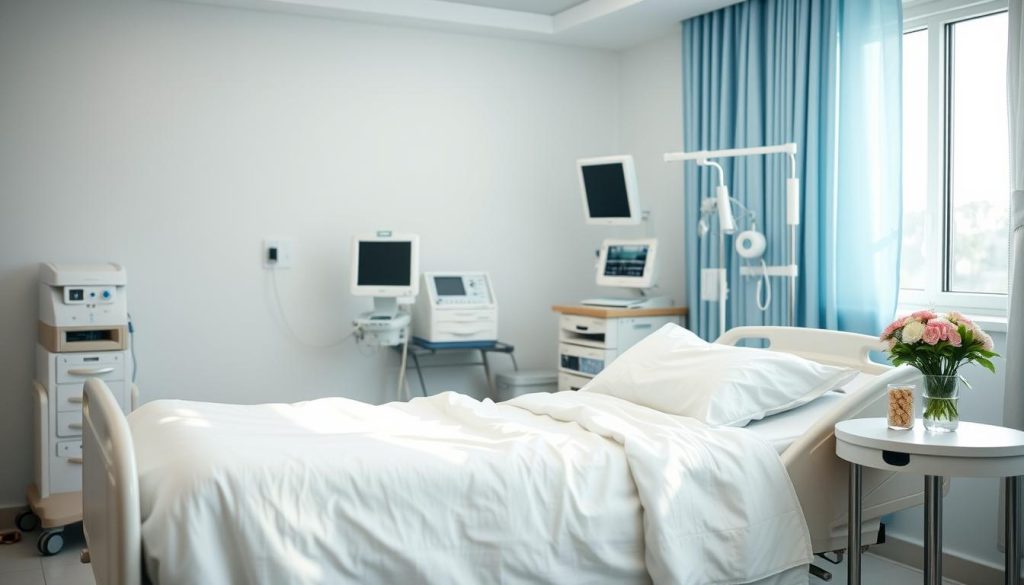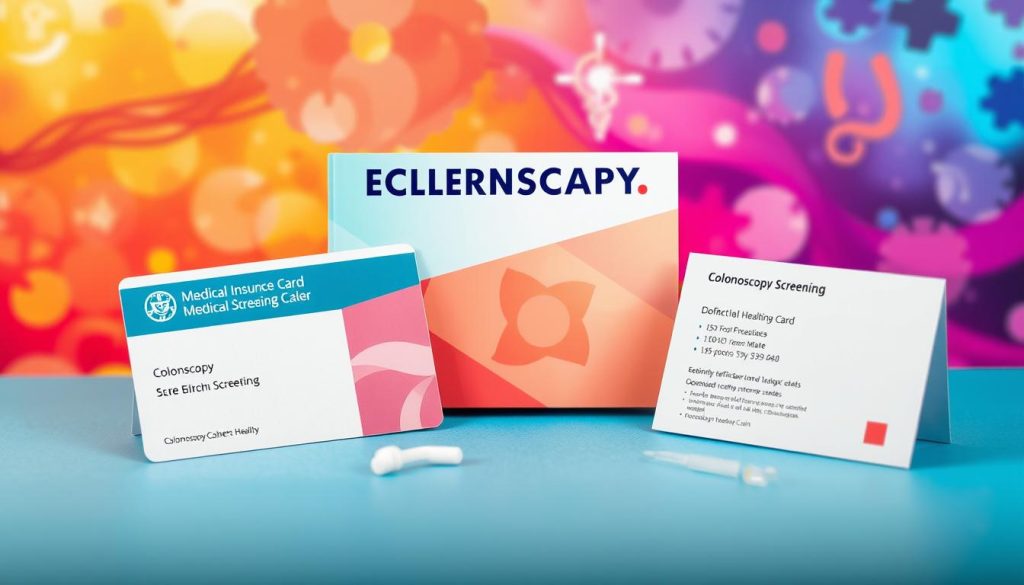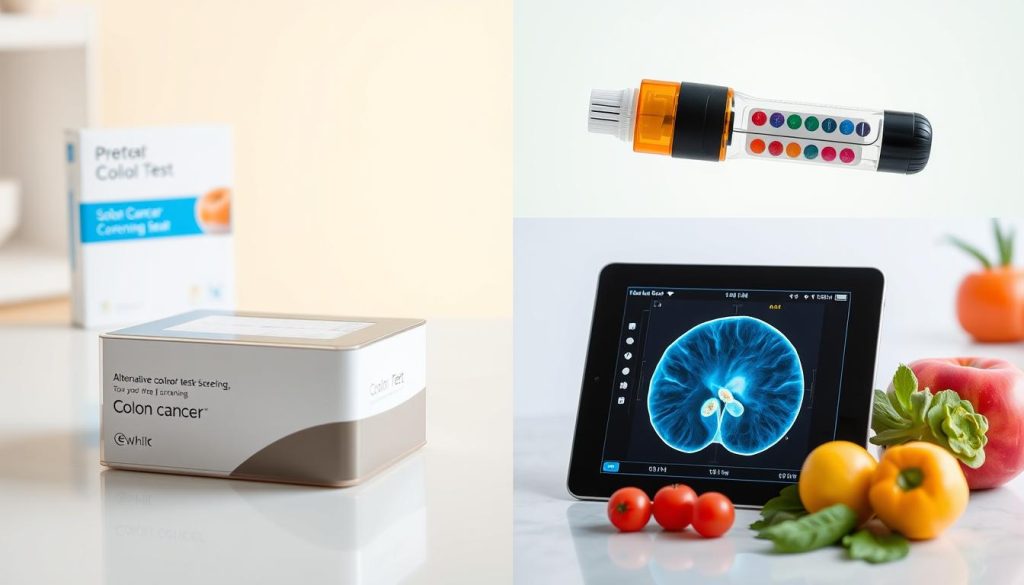Colorectal cancer is a silent threat that affects thousands of Americans each year. The key to fighting this disease lies in early detection through regular screenings. Colonoscopy, a vital tool in colorectal cancer prevention, allows doctors to spot and remove precancerous growths before they become life-threatening. By undergoing timely colonoscopies, you’re taking a proactive step towards safeguarding your health. These screenings can detect colon cancer symptoms long before they become noticeable, significantly improving treatment outcomes and survival rates.
Early detection through colonoscopy not only saves lives but also reduces the emotional and financial burden of advanced cancer treatment. Don’t wait for symptoms to appear – speak with your doctor about when to start your regular colonoscopy screenings. Your future self will thank you for this life-saving decision.
Understanding Colonoscopy Cancer Screening and Its Importance
Colon cancer screening is key in finding and stopping colorectal cancer. A colonoscopy is a strong tool in this battle. It helps find problems early and prevent them. Let’s see why this is so vital for your health.
What Defines a Colonoscopy Procedure
A diagnostic colonoscopy looks at the whole colon with a long, flexible tube and camera. Doctors can find issues like polyps or tumors. The process is usually painless and takes about 30 minutes.
The Role of Screening in Cancer Prevention
Regular colonoscopies are essential for stopping colorectal cancer. They can find polyps that could turn into cancer and remove them. This early action greatly lowers the chance of getting colon cancer.
Statistical Impact on Survival Rates
Early detection through screening greatly boosts survival chances. If caught early, the 5-year survival rate for colorectal cancer is 90%. But, if it spreads, the survival rate drops to 14%. This shows how critical early screenings are.
| Cancer Stage | 5-Year Survival Rate |
|---|---|
| Localized | 90% |
| Regional Spread | 71% |
| Distant Spread | 14% |
By understanding the role of colonoscopy cancer screening, you can protect your health. Don’t delay – speak with your doctor about getting screened today.
Common Risk Factors for Colorectal Cancer Development
Knowing about bowel cancer risk factors is key to catching it early. Age is a big factor, with risk going up after 50. If your family has had colorectal cancer or polyps, your risk goes up too.
Your lifestyle choices also play a big role. Eating a lot of red and processed meats and not enough fiber can up your risk. Not exercising enough and being overweight also add to the risk.
Some medical conditions can make you more likely to get colorectal cancer:
- Inflammatory bowel diseases like Crohn’s or ulcerative colitis
- Type 2 diabetes
- Previous radiation therapy to the abdominal area
Smoking and drinking too much alcohol also raise your risk. It’s important to know about these factors and talk to your doctor. If you have several risk factors, getting regular screenings is even more important.
Spotting colon cancer symptoms early can help a lot. Look out for changes in your bowel habits, ongoing belly pain, and unexplained weight loss. Seeing blood in your stool or rectal bleeding is a red flag that means you need to see a doctor right away.
By knowing these risk factors and watching for symptoms, you can help keep your colon healthy.
Recognizing Early Warning Signs and Symptoms
Early detection is key in treating colon cancer. Knowing the signs can lead to timely diagnosis and better outcomes. Let’s explore key colon cancer symptoms to watch for.
Physical Symptoms to Monitor
Be alert for unexplained weight loss, persistent abdominal pain, or blood in your stool. These could be early indicators of colon cancer. Fatigue and weakness might also signal something’s amiss.
Changes in Bowel Habits
Pay attention to shifts in your bathroom routine. Frequent constipation, diarrhea, or changes in stool consistency lasting more than a few weeks warrant attention. Narrow stools or a feeling of incomplete bowel emptying are also red flags.
When to Seek Medical Attention
Don’t ignore persistent symptoms. If you experience any of these signs for more than two weeks, schedule an appointment with your doctor. Early detection through screening can catch colon cancer in its initial stages when it’s most treatable.
| Symptom | Action |
|---|---|
| Blood in stool | Consult doctor immediately |
| Persistent abdominal pain | Schedule check-up within a week |
| Change in bowel habits | Monitor for two weeks, then see doctor |
| Unexplained weight loss | Book appointment within two weeks |
Remember, these symptoms don’t always mean cancer, but it’s better to be safe. Regular screenings and awareness of your body can lead to early detection and better outcomes in fighting colon cancer.
The Complete Guide to Colonoscopy Preparation
Getting ready for a colonoscopy is very important. It helps your doctor see your colon clearly. Here’s what you need to do to prepare for this key test.
Dietary Restrictions Before the Procedure
Before your colonoscopy, you’ll need to change your diet. Avoid foods high in fiber and seeds. The day before, only drink clear liquids. This helps clean your digestive system.

Medication Adjustments
Some medicines can affect the colonoscopy. Tell your doctor about all your medications. They might ask you to stop or change certain drugs, like blood thinners or diabetes medicines.
Bowel Preparation Protocol
The bowel cleanse is the most critical part of getting ready. You’ll drink a special laxative solution. Make sure to follow the instructions well to clean your colon for the exam.
| Time Before Procedure | Action |
|---|---|
| 7 days before | Stop eating seeds and nuts |
| 3 days before | Avoid high-fiber foods |
| 1 day before | Clear liquids only |
| Evening before | Start bowel prep solution |
Remember, proper preparation is essential for a good colonoscopy screening. Follow your doctor’s advice carefully. This will help in detecting and preventing colonoscopy cancer.
What to Expect During Your Colonoscopy Cancer Screening
A diagnostic colonoscopy is key for catching colonoscopy cancer early. Knowing what happens can make you feel more at ease and ready for it.
When you get to the medical place, you’ll put on a hospital gown. Then, you’ll lie on your side on a table. The doctor will give you sedation through an IV to keep you calm.
The doctor will then put a thin, flexible tube with a camera into your rectum. This lets them check your colon’s lining for any problems or cancer signs.
If they find polyps or something suspicious, they might take them out or get tissue samples. This is usually painless because of the sedation.
| Procedure Step | Duration | Patient Experience |
|---|---|---|
| Arrival and Preparation | 30-60 minutes | Change into gown, receive IV |
| Sedation Administration | 5-10 minutes | Relaxation, drowsiness |
| Colonoscopy Examination | 20-30 minutes | Minimal discomfort, mostly asleep |
| Recovery | 30-60 minutes | Gradual awakening, mild grogginess |
After it’s done, you’ll stay in a recovery area until you’re fully awake. You might feel a bit fuzzy and bloated. Make sure someone drives you home, and take it easy for the rest of the day.
Remember, a colonoscopy is a vital way to keep your health in check and find problems early. Knowing what to expect can help you feel more confident and calm about the whole thing.
Advanced Technology in Modern Colonoscopy Procedures
Colonoscopy cancer screening has made huge strides thanks to new tech. These advancements help find problems early and improve care for patients.
Digital Imaging Innovations
Now, high-definition cameras show the colon in perfect detail. This big improvement lets doctors see tiny issues they might have missed. Some tools can zoom up to 150 times, showing things we can’t see with our eyes.

Artificial Intelligence in Detection
AI software checks colonoscopy images as they’re taken. It points out any odd spots for a closer look. This technology is like having a second pair of eyes, helping catch cancer signs early.
| Technology | Benefit | Impact on Early Detection |
|---|---|---|
| HD Imaging | Clearer view of colon surface | 20% increase in small polyp detection |
| AI Analysis | Real-time abnormality flagging | 15% reduction in missed lesions |
| 3D Mapping | Comprehensive colon visualization | 10% improvement in precancerous growth identification |
These new technologies make colonoscopy cancer screening better than ever. They help doctors find problems early, when treatment works best. Patients get more accurate diagnoses and feel more at ease.
Understanding Polyp Types and Their Significance
Polyps are abnormal growths in the colon. Doctors look for them during colonoscopies to prevent colorectal cancer. Knowing about different polyps helps us understand their risks and why removing them is important.
Polyps are divided into two main types: non-neoplastic and neoplastic. Non-neoplastic polyps rarely turn into cancer. Neoplastic polyps, though, have a higher risk of becoming cancerous over time.
The most common types of polyps include:
- Adenomatous polyps: These neoplastic growths can become cancerous if left untreated.
- Hyperplastic polyps: Usually small and non-cancerous, they’re typically found in the lower colon.
- Inflammatory polyps: Often a result of inflammatory bowel disease, these are generally not precancerous.
- Serrated polyps: Some types in this category can become cancerous if not removed.
Removing polyps is key to preventing colorectal cancer. During a colonoscopy, doctors can spot and remove polyps before they turn into cancer. This greatly lowers the risk of colorectal cancer.
| Polyp Type | Cancer Risk | Typical Size | Location |
|---|---|---|---|
| Adenomatous | High | Varies | Throughout colon |
| Hyperplastic | Low | Small | Lower colon |
| Inflammatory | Low | Varies | Areas of inflammation |
| Serrated | Moderate to High | Often flat | Right side of colon |
Regular screenings and timely polyp removal are vital for colon health and preventing colorectal cancer. If you’re due for a colonoscopy, don’t delay – it could save your life.
Recovery and Post-Procedure Care Guidelines
After your colonoscopy cancer screening, it’s important to take care of yourself. Knowing what to expect can help you feel better and recover faster.
Immediate Recovery Period
You’ll need a day to get back to normal after your screening. Resting is essential. You might feel bloated or gassy, but this is normal.
Stick to light foods and drink lots of water. Avoid alcohol and hard activities for 24 hours.

If you have severe pain, fever, or excessive bleeding after your colonoscopy, call your doctor right away. These signs could mean you need urgent care.
Long-term Follow-up Recommendations
Your doctor will tell you when to have your next colonoscopy. If no polyps were found, you might not need another for 10 years. But, if polyps were found, you might need more frequent tests.
Regular colonoscopy screenings are key for catching cancer early. Stay on top of your colon health by following your doctor’s advice and living a healthy lifestyle between screenings.
Treatment Options for Detected Abnormalities
When doctors find abnormalities during a colonoscopy, they have many treatment options. These include simple polyp removal and more complex procedures for serious cases. Let’s look at the treatments available for colonoscopy findings.
Polyp Removal Techniques
Removing polyps is a common procedure during colonoscopies. Doctors use special tools to take out these growths. This is because polyps can turn cancerous if not treated.
The method used depends on the polyp’s size and where it is located.
- Snare polypectomy: Uses a wire loop to remove larger polyps
- Cold forceps polypectomy: For tiny polyps, using forceps to pinch them off
- Hot biopsy: Combines removal and cauterization for small polyps
Advanced Treatment Methods
For serious findings, doctors may need to use advanced treatments. These treatments aim to remove cancerous tissue and stop it from spreading.
| Treatment | Description | Best For |
|---|---|---|
| Endoscopic mucosal resection | Removes larger polyps or early-stage cancers | Large polyps or superficial cancers |
| Colorectal surgery | Removes part of the colon with cancer | Advanced or larger tumors |
| Chemotherapy | Uses drugs to kill cancer cells | Widespread or recurring cancer |
| Radiation therapy | Uses high-energy rays to destroy cancer cells | Rectal cancers or to shrink tumors |
Your doctor will choose the best treatment based on the colonoscopy findings. Early detection through regular screenings leads to more effective and less invasive treatments.
Insurance Coverage and Cost Considerations
Understanding the costs of colon cancer screening is key to planning. Many insurance plans cover these screenings, making them easier to access.

Medicare Part B covers colonoscopy screenings for high-risk people every 24 months. For those at average risk, it’s every 120 months. Most private insurance plans also cover these screenings fully, with no cost to you.
If you’re uninsured or your plan doesn’t cover it, don’t worry. Hospitals and clinics offer affordable options. Some non-profit groups also help with the costs of screenings.
| Insurance Type | Typical Coverage | Patient Cost |
|---|---|---|
| Medicare | 100% for eligible screenings | $0 for preventive screenings |
| Private Insurance | Often 100% for in-network providers | Varies, often $0 for preventive care |
| Uninsured | N/A | $1,000 – $3,000 without assistance |
Always check with your insurance about what they cover. Some plans need you to get approval first. Talk to your doctor about any financial worries. They can help find ways to make screenings more affordable.
Myths and Facts About Colonoscopy Procedures
Colonoscopy cancer screenings are key to catching cancer early. But, many myths stop people from getting this life-saving test. Let’s clear up the confusion with the truth.
Common Misconceptions
Many fear colonoscopies because of myths. Some think it’s very painful or the prep is too hard. Others believe it’s embarrassing or they don’t need it if they feel fine.
Evidence-Based Facts
Studies show colonoscopies are usually painless thanks to sedation. The prep might not be fun, but it’s doable with today’s options. Your privacy is kept safe during the test. Most importantly, colon cancer often has no symptoms, making regular checks essential.
| Myth | Fact |
|---|---|
| Colonoscopies are painful | Sedation ensures comfort during the procedure |
| Prep is unbearable | Modern prep solutions are more tolerable |
| Only needed with symptoms | Colon cancer often develops silently |
| Embarrassing procedure | Medical teams prioritize patient dignity |
Knowing the truth can help ease worries about colonoscopy cancer screenings. Regular checks save lives by finding problems early, when they’re easiest to treat.
Alternative Screening Methods and Their Effectiveness
Colonoscopy is the top choice for finding colon cancer, but other methods are available. These options are good for those who can’t or don’t want to have a colonoscopy.

Fecal occult blood tests (FOBT) find hidden blood in stool. They’re easy to do at home and don’t hurt. But, they’re not as good as colonoscopies at catching all problems.
Virtual colonoscopies use CT scans to see the colon in 3D. It’s less scary than a real colonoscopy but needs you to clean out your bowels. It spots big polyps well but might miss small ones.
Stool DNA tests look for cancer signs in stool. They’re very good at finding problems but can sometimes say you have cancer when you don’t.
| Screening Method | Sensitivity | Invasiveness | Frequency |
|---|---|---|---|
| Colonoscopy | High | High | Every 10 years |
| FOBT | Moderate | Low | Annually |
| Virtual Colonoscopy | Moderate-High | Moderate | Every 5 years |
| Stool DNA Test | High | Low | Every 3 years |
These alternatives are good for screening, but talk to your doctor. They’ll help pick the best test for you based on your health and risk for colon cancer.
Preventive Lifestyle Measures for Colorectal Health
Protecting your colorectal health is key to avoiding cancer. Making smart choices every day can lower your risk of bowel cancer. Let’s look at some easy ways to keep your colon healthy.
Dietary Recommendations
Eating right is important for preventing colorectal cancer. Eat lots of fruits, veggies, and whole grains. These foods are full of fiber, which is good for your digestive system.
Try to eat less red and processed meats. They can increase your risk of colorectal cancer.
Exercise and Activity Guidelines
Being active is vital for lowering bowel cancer risk. Aim for 150 minutes of moderate exercise or 75 minutes of vigorous exercise weekly. You can walk briskly, cycle, or swim.
Staying active helps keep your weight healthy and improves gut health.
Lifestyle Modifications
Changing your lifestyle can help prevent colorectal cancer. Quit smoking and drink less alcohol. Keep a healthy weight with diet and exercise.
Get enough sleep and handle stress well. Don’t forget regular screenings like colonoscopies for early detection.
By making these changes, you can control your colorectal health and lower bowel cancer risk. Small daily changes can greatly improve your health over time.
Latest Research and Developments in Colonoscopy Technology
The field of colonoscopy cancer screening is changing fast. Scientists are creating new technologies to find cancer early and with less discomfort. They’re using artificial intelligence (AI) to spot small polyps that humans might miss. This could help patients get better care and catch cancer sooner.
There’s also work on “smart” colonoscopes. These tools use advanced imaging for clearer views of the colon. Some even have sensors to analyze tissue right away. These advancements aim to make colonoscopy screenings more accurate and comfortable for everyone.
Researchers are also looking into non-invasive options. A small, swallowable camera is being tested to take pictures as it moves through the body. It’s not as detailed as a regular colonoscopy yet, but it could be a good choice for those who are nervous. As these tools get better, they might become part of the standard care, helping more people detect cancer early.
FAQ
Q: What is a colonoscopy and why is it important for cancer screening?
A: A colonoscopy is a test that looks at your colon and rectum. It uses a long, flexible tube with a camera. It’s key for finding and removing polyps before they turn into cancer. This can save lives by catching cancer early.
Q: At what age should I start getting regular colonoscopies?
A: The American Cancer Society says to start screenings at 45 if you’re at average risk. If you have a family history of colon cancer, your doctor might suggest starting earlier.
Q: How often should I get a colonoscopy?
A: If you’re at average risk and have normal results, you need a colonoscopy every 10 years. But, if you have polyps or other risk factors, your doctor might say you need it more often.
Q: What are the main risk factors for colorectal cancer?
A: Being over 50, having a family history of colon cancer, and having inflammatory bowel disease are big risks. Being overweight, smoking, drinking too much alcohol, and eating too much red meat also increase your risk. Some genetic conditions can also raise your risk.
Q: What symptoms should prompt me to seek a colonoscopy?
A: Look out for changes in your bowel habits, blood in your stool, and unexplained pain or cramping. If you lose weight or feel tired without reason, see your doctor right away.
Q: How do I prepare for a colonoscopy?
A: You’ll need to eat only clear liquids for 24-72 hours before. You’ll also take laxatives to clean out your bowel. Make sure to follow your doctor’s instructions carefully for a good test.
Q: Is a colonoscopy painful?
A: Most people don’t feel pain during the test because they’re sedated. You might feel some pressure or cramping, but it’s usually not bad. Any discomfort after is usually mild and doesn’t last long.
Q: What happens if polyps are found during my colonoscopy?
A: If polyps are found, they’re usually removed right then. The polyps are then checked to see if they’re cancerous. Your doctor will talk to you about the results and what to do next.
Q: Are there alternative screening methods to colonoscopy?
A: Yes, there are other tests like fecal occult blood tests and virtual colonoscopies. But, colonoscopy is the best because it can find and remove polyps in one go.
Q: How accurate is colonoscopy in detecting cancer?
A: Colonoscopy is very good at finding cancer and polyps. With new technology like high-definition imaging, it can spot polyps over 90% of the time.
Q: Is colonoscopy covered by insurance?
A: Most insurance plans, including Medicare, cover colonoscopies for cancer screening. But, check with your insurance to see what’s covered and what you might have to pay out of pocket.
Q: Can lifestyle changes reduce my risk of colorectal cancer?
A: Yes, staying healthy, exercising, not drinking too much, not smoking, and eating well can lower your risk. These changes work together with regular screenings to help prevent cancer.

















